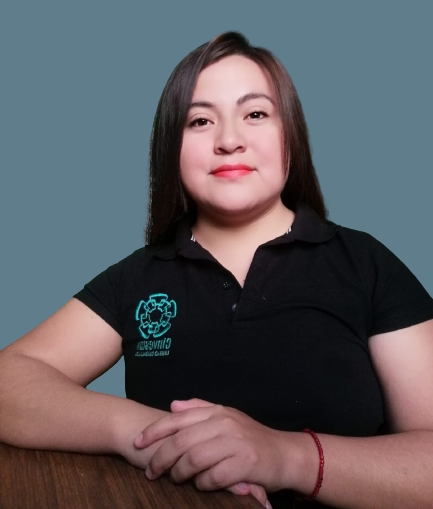Plenary Lectures:
- Control and Optimization in the Presence of Uncertainties: Theory and Practice by Gabriele Pannocchia (University of Pisa, Italy)
- AI or Process Control – Process Understanding and Good Dynamic Modelling Remains Key by Stefan Krämer (Bayer AG, Germany)
Semi-Plenary Lectures:
- Best Paper Award: Analytical design of a wide class of controllers with two tunable parameters based on H∞ specifications by Michal Brabec – Miloš Schlegel (University of West Bohemia, Czech Republic)
- Best Paper by Female Researcher Award: Design of Modular Hierarchical Discrete-Event Control Architectures for Complex Industrial Systems by Edith Sánchez (Centro de Investigación y Estudios Avanzados, Mexico)
- Best Paper by Young Author Award: From Stationary to Flexible Plant Operation: Extension of a Co-Current Rotary Dryer Model for Energy Demand Flexibility by Jan Schaßberger (Karlsruhe Institute of Technology, Germany)
Plenary Lecture I
Control and Optimization in the Presence of Uncertainties: Theory and Practice
by Gabriele Pannocchia (University of Pisa, Italy)
ABSTRACT: This plenary talk addresses the general objective of how
to regulate and optimize a process on the basis of an available model which, in
general, describes the actual process behavior in an approximate way. The presence
of systematic uncertainties, such as gain errors, poses challenges to model-based
control and optimization methods so that without adequate compensation strategies
there is permanently suboptimal behavior, such as offset.
The talk will guide the
audience through the design principles of Model Predictive Control (MPC) systems to
cope with the presence of a structural mismatch between the actual plant and the MPC
model. The general goal is to asymptotically reach the optimal behavior for the
actual unknown plant.
The talk will be structured into three main parts.
We
start from the case of tracking, linear and nonlinear, MPC to build a general
algorithm that guarantees offset-free tracking of piece-wise constant set-points in
the outputs. To this aim, the nominal model is augmented with integrating states,
referred to as “disturbances”, and a combined state and disturbance observer is
consequently designed. We analyze the requirements and opportunities of this
disturbance observer and discuss how other approaches, commonly thought to be
different, are indeed particular cases of this general approach. In the second part,
we present recent results on the generalization of Internal Model Control (IMC)
systems to handle integrating/unstable plants in the presence of a plant-model
mismatch. This novel IMC algorithm is based on a general disturbance model, as in
offset-free tracking MPC. We analyze the necessary and sufficient conditions that
guarantee internal stability and offset-free tracking, and we derive analytical
expressions of the sensitivity functions to provide the designer with effective
tools for achieving the desired tradeoff between performance and
robustness.
Finally, we focus attention on so-called economic MPC formulations,
in which the cost function is not positive-definite around the optimal equilibrium.
For this novel class of MPC systems, we present the recent results on offset-free
design which includes, in addition to an augmented model as in tracking MPC, a
suitable first-order modifier necessary to achieve matching of the necessary
conditions of optimality. Computation of such modifiers requires, in principle,
knowledge of plant gradient information, and therefore we discuss implementation
strategies based on available input-output measurements only. These offset-free
economic MPC algorithms are closely related to Real-Time Optimization methods, and
hence the necessary lines of conjunction will be drawn.
We conclude the lecture
by sketching future research directions and open problems.

Bio: Gabriele Pannocchia received a Ph.D. in Chemical Engineering from the University of Pisa (Italy) in 2002, where he is a Full Professor since 2020. He held a Visiting Associate position at the University of Wisconsin – Madison (WI, USA) in 2000/2001 and in 2008. Dr. Pannocchia is the author of about 140 papers in international journals, book chapters, and proceedings of international conferences. Dr. Pannocchia is Senior Editor for the Journal of Process Control, served as Associate Editor of Automatica, and is Vice-Chair for Education of the IFAC TC 2.4 (Optimal Control). Dr. Pannocchia was IPC co-chair of the IFAC Symposium DYCOPS 2013 held in Mumbai (India), Area Co-Chair/Associate Editor in IFAC DYCOPS 2016, IFAC World Congress 2017, IFAC NMPC 2018, UK Control 2018, IFAC World Congress 2020. He has been a plenary speaker at the 4th IEEE Colombian Conference on Automatic Control, and keynote speaker at several international congresses (IFAC DYCOPS 2010, IFAC NMPC 2015, IFAC DYCOPS 2016, IFAC ADCHEM 2018). Dr. Pannocchia was the NOC Chair of IFAC ADCHEM 2021 and IPC Chair of IFAC NMPC 2021. His research interests include model predictive control systems, process simulation and optimization, numerical optimization, multivariable systems identification, performance monitoring, and industrial implementations of advanced control systems.
.
Plenary Lecture II
AI or Process Control – Process Understanding and Good Dynamic Modelling Remains Key
by Stefan Krämer (Bayer AG, Germany)
ABSTRACT: Chemical production processes are inherently nonlinear, complex, and often show both discrete and continuous dynamics. Nonetheless, these complex processes can be and need to be operated safely, stably, and preferably optimally to produce the desired products as resource efficiently as possible. Process design and process operations, when using optimisation and control for both new and existing plants, play a major role in achieving this goal. In recent years, the process control domain has been successfully enriched with machine learning and artificial intelligence based approaches to improve control performance and optimization. But is ML/AI the solution to everything as is sometimes proposed? In this presentation, a journey through typical control problems in the process industries from PID-control to AI-supported control schemes in the chemical industries will be presented and some hypotheses will be discussed. The experience will be shared that most of the approaches will not work with at least some process understanding and rigorous process modelling. One of the major challenges in the process industries is the application of the right level of complexity in process control to real plants to achieve optimal operation while giving engineering and plant personnel the chance to sustainably maintain the solution in the long run. Process models and process understanding will keep playing a major role in this challenge at least in the medium-term future. At the same time, the potential of ML and AI is huge. They can help in both the selection of the right application and in overcoming some of the modelling challenges.

Bio: Stefan Krämer is a chemical engineer and Head of Process Performance Improvement (PPI) at Bayer, Leverkusen. PPI is globally working on improving the operation and energy efficiency of production processes with the aid of simulation, data analysis and process control. At NAMUR (the User Association of Automation Technology in Process Industries, www.namur.net), he is the leader of the work area 2 “WA 2 Automation Systems for Processes and Plants”. Stefan also teaches “Batch Process Operation” as an adjunct professor at the Technical University of Dortmund and has participated in several EU projects dealing with resource efficiency, which resulted in the publication of a number of scientific papers and the book “Resource Efficiency of Processing Plants”. He currently represents Bayer in the KEEN project – Artificial Intelligence in the Process Industry.
Semi-Plenary Lecture I
Analytical design of a wide class of controllers with two tunable parameters based on H∞ specifications
by Michal Brabec and Miloš Schlegel (University of West Bohemia, Czech Republic)
ABSTRACT: First, the paper introduces a specific class of controllers with two tunable parameters called affine controllers, which includes almost all controllers with a fixed structure commonly used in industrial practice, including PI(D) controllers. The main result of this paper presents a new analytical method for the design of the H∞ affine controller based on a description of the boundary of the H∞ region in the parametric plane of the controller. A user-friendly interactive implementation of this method, supporting multiple system models, is available at www.pidlab.com. The use of this tool is also illustrated by an example.


Semi-Plenary Lecture II
Design of Modular Hierarchical Discrete-Event Control Architectures for Complex Industrial Systems
by Edith Sánchez (Centro de Investigación y Estudios Avanzados, Mexico)
Best Paper by Female Researcher Award
ABSTRACT: This paper proposes a design strategy of hierarchical architectures for discrete-event control of complex industrial systems. The system behaviour complexity is addressed by modelling its operation in a two-dimensional space built by operation-mode (i.e., degree of user intervention) and operation-state (i.e., operational conditions) dimensions as proposed by the ISA-S88.01 control standards. Procedural control modules are synthesized using Procedural Control Theory. The notion of a “safe state” is employed to guarantee the system evolution along the two-dimension operation domain. To demonstrate the design strategy, a two-level architecture is built to operate a continuous tubular reactor. The architecture was implemented and tested with Stateflow in Simulink-MATLAB and translated to structured language in the Siemens TIA portal environment for an S1200-PLC following IEC61131 guidelines.

Semi-Plenary Lecture III
From Stationary to Flexible Plant Operation: Extension of a Co-Current Rotary Dryer Model for Energy Demand Flexibility
by Jan Schaßberger (Karlsruhe Institute of Technology, Germany)
Best Paper by Young Author Award
ABSTRACT: Industrial greenhouse gas emissions must be reduced to meet the climate goals. One suitable measure is the electrification of industrial processes, which poses great challenges in conjunction with the necessary transition of the electrical grid towards renewable energy sources. In this context demand side flexibility of industrial processes is considered to take a key role, which requires suitable models that can predict the system behavior over a large operating range. For this reason, we developed a new model of a co-current rotary dryer as an example of this energy intensive process group with the focus on energy demand flexibility. In the present paper, this model is extended by the consideration of the dryer shell, which is usually neglected in modeling. By simulation it is shown that the shell has a small influence on the temperature and humidity profiles in a stationary state. However, transient simulations indicate that the heat capacity of the shell has a strong effect on the dynamic system response.
Bio: Jan Schaßberger is a research assistant at Karlsruhe Institute of Technology (KIT), currently working in the Innopool EuK project for the decarbonization and flexibilization of energy-intensive recycling processes. Part of this project deals with the analysis of load shifting potentials in industrial processes to support the energy grid of the future based on renewable energies. Within the project he does research in the field of particulate transport processes in the group System Theory and Control at the Institute for Automation and Applied Informatics since 2021. His focus is on modeling, analytical and numerical approaches for model analysis and control with regard to energy flexibility. He gained his bachelor’s and master’s degree in Mechatronics and Information Technology, with a focus on control engineering, at KIT.